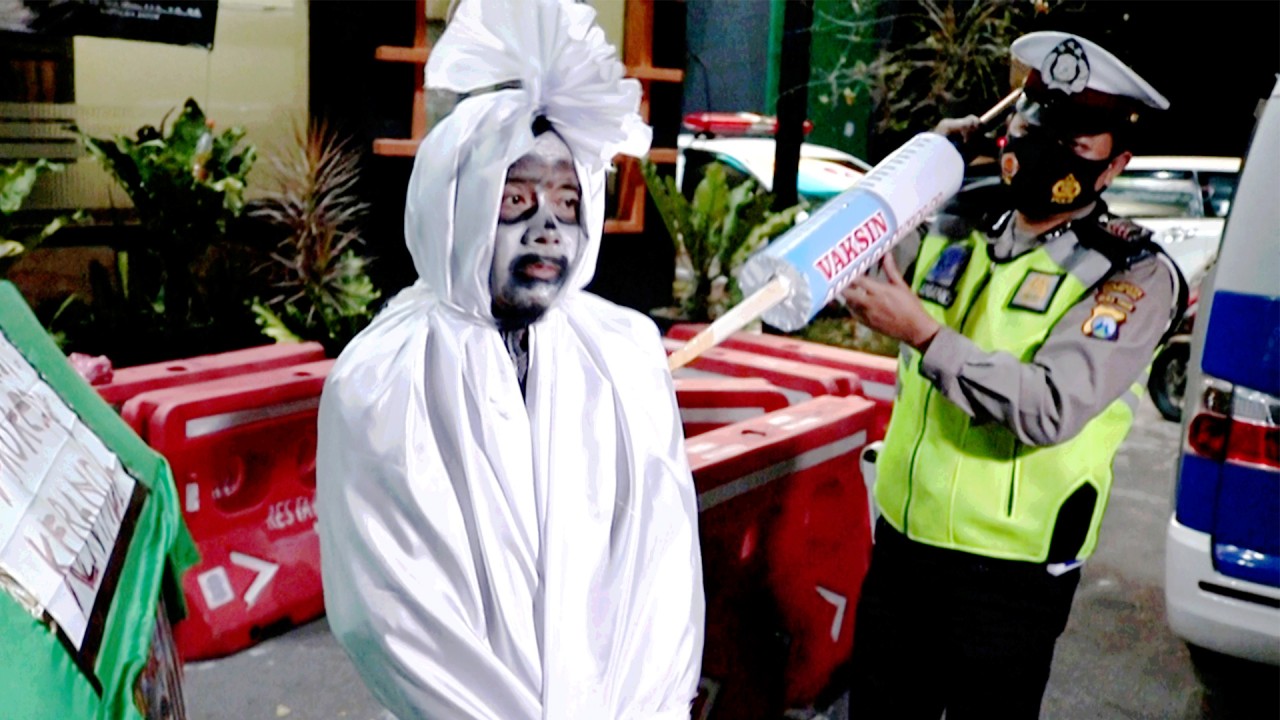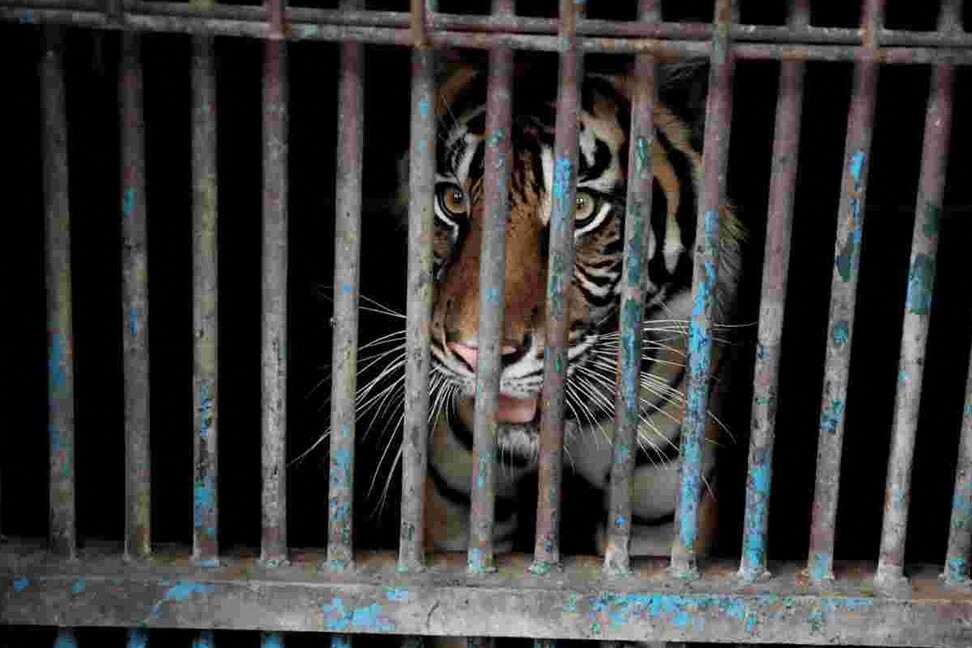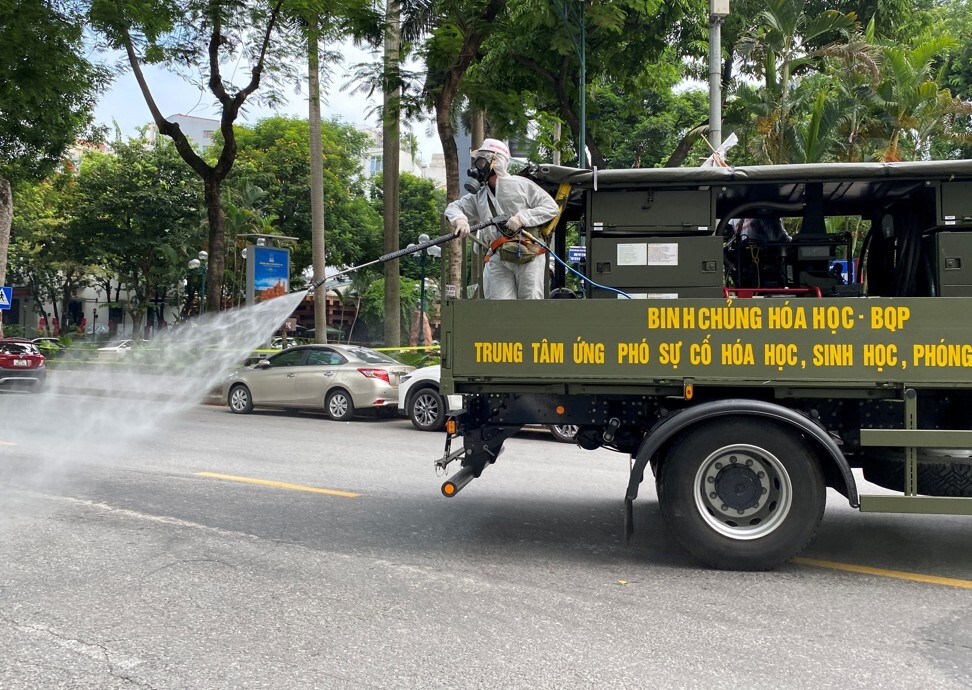
Coronavirus: Cambodia to mix Sinovac, AstraZeneca vaccine shots as boosters; Indonesia probes how zoo tigers got infected
- Cambodia will administer a third dose to some 500,000 to 1 million frontline workers
- Elsewhere, Australia’s battle against the Delta variant is growing; while Indonesia is investigating how two Sumatran tigers contracted Covid-19 at Jakarta Zoo
Prime Minister Hun Sen, launching the vaccination campaign for 12-17 years old, said on Sunday that the third dose would be offered to some 500,000 to 1 million frontline workers as a priority.
“People who have already been vaccinated with Sinopharm and Sinovac should be given AstraZeneca as the third booster dose,” Hun Sen said in a speech which was broadcast on social media. “For Cambodians who have been vaccinated with AstraZeneca, Sinovac should be given as the third dose.”
As Cambodia races to contain Alpha outbreak, Delta threat looms
Hun Sen also said the country would buy more AstraZeneca vaccines through the Covax Facility for the booster shots, and that the recent US-funded Johnson & Johnson vaccines will be used to vaccinate indigenous peoples in northeastern Cambodia.
Cambodia has launched a lockdown in eight provinces bordering Thailand this week in a bid to prevent the spread of the Delta variant of the coronavirus in the Southeast Asian country.
Cambodia managed to largely contain the virus for most of last year, but an outbreak first detected in late February has driven up total cases to 77,919, with 1,420 deaths.

02:24
Indonesia imposes new coronavirus rules as Delta variant sweeps country
Australia’s battle against Delta variant grows
Sydney and its surroundings, which have already been under a stay-at-home order for five weeks, reported 239 new locally acquired cases of the highly infectious Delta strain.
The city’s 5 million residents and those in neighbouring regional centres spanning 200km of coastline are to stay home until August 28 at least. The total number of cases in the outbreak, which began in mid-June, has reached 3,427.
Has the Delta variant of Covid-19 curbed the effectiveness of lockdowns?
“I think what is important to know is that there is no road map for the Delta variant,” NSW Premier Gladys Berejiklian said. “The challenge for us is getting as many people vaccinated in August as possible so by the time 28 of August comes around, we have options as to how we can ease restrictions.”
Australia’s vaccination drive has been sluggish, with only 18 per cent of adults fully vaccinated so far. Brad Hazzard, NSW health minister, said that 70 per cent of the state’s population could be fully vaccinated in about four months.
In neighbouring Queensland, there were nine new locally acquired cases of Covid-19, the biggest daily spike in almost a year. More than 3 million residents were put into a three-day snap lockdown on Saturday.
“It is vital (to get tested), anyone with any symptoms at all, it doesn’t matter where you are, because I don’t know where this virus is at the moment,” Queensland’s chief health officer Jeannette Young said.
Australia has managed to keep its epidemic largely under control with a total of just over 34,000 cases and 924 deaths. But the slow vaccination drive means that it could be months before the country’s borders reopen.
Tigers at Indonesian zoo recovering from Covid-19
Two Sumatran tigers at an Indonesian zoo were recovering from Covid-19 after they tested positive in mid-July, the Jakarta government said in a statement on Sunday, adding that authorities were trying to find out how they were infected.
Tino, a nine-year-old tiger, and Hari, a 12-year-old, were tested for the virus after both showed flu-like symptoms, had trouble breathing and lost their appetite, the statement said.
The tigers had undergone around 10 to 12 days of treatment and were gradually showing signs of recovery, Jakarta’s Head of the Parks and City Forest Office, Suzi Marsitawati, said.
“Their appetites have returned and they are back to being active,” Suzi said, although both tigers remained under close observation.
Red tape hinders Indonesia’s vaccination drive, even as cases surge
She said authorities were doing tracking and tracing to figure out how the tigers were infected. “When the animals started to show symptoms, the Ragunan zoo was already closed due to emergency mobility restrictions,” Suzi said, referring to the Jakarta zoo.
She added that none of the caretakers and workers had tested positive with Covid-19 around the time the animals were infected.
Vietnam extends southern region’s stay-home order
The existing order for Ho Chi Minh City ends August 1. The extension is directed at 19 localities and is part of the government’s aggressive antivirus measures to contain the nation’s worst coronavirus outbreak, which began in late April.
The Thanh Nien newspaper reported that stay-home orders for 19 cities and provinces will also expire on August 1.
Vietnam’s fourth wave takes toll on factory output, small businesses
The order, which bans residents from leaving home for most reasons, is also directed at Ho Chi Minh City’s neighbouring provinces of Binh Duong and Dong Nai – home to numerous industrial estates used by global suppliers – as well as the Mekong Delta’s rice bowl.
Ho Chi Minh City, the neighbouring provinces of Binh Duong and Dong Nai, and seven other southern provinces are extending 6pm-to-6am curfews by 14 more days from Aug. 2, the newspaper Tuoi Tre reported on Sunday, citing information from local governments. Two other provinces are keeping the same curfew for another week from Monday.
The coastal city of Da Nang imposed a similar curfew for an undetermined time from July 31, according to the newspaper.
The country reported a total 150,060 virus cases and 1,306 deaths as of Saturday, with 97% of infections recorded from late April, according to the health ministry. Ho Chi Minh City accounts for about 63 per cent of infections in the current outbreak.
Thai virus curb expanded to cover 40 per cent of population
Thailand is set to expand its quasi-lockdown measures to its regions that are hardest-hit by the coronavirus pandemic and home to about 40 per cent of the population.
The most stringent restrictions in 13 provinces, including the capital Bangkok and its surrounding regions, will be extended to August 31, and those curbs will be expanded to 16 additional provinces, the Center for Covid-19 Situation Administration said on Sunday.
Thai protests return as Covid-19 pandemic rages, vaccine campaign stutters
Similar to many of its Southeast Asian peers, Thailand is grappling with a surge in Covid cases fuelled by the more contagious Delta variant. On Sunday, the country reported 18,027 new infections and 133 deaths, with more than 200,000 active cases and nearly 5,000 patients in critical condition.
The Thai public-health system has been overwhelmed with the spike in infections and hospitalisation, forcing authorities to add more hospital beds and advise home and community isolation for patients with mild symptoms.
The country has administered 17.7 million doses of vaccines to date, leaving a large section of its population of 70 million still vulnerable.
Reporting by Reuters, Bloomberg


